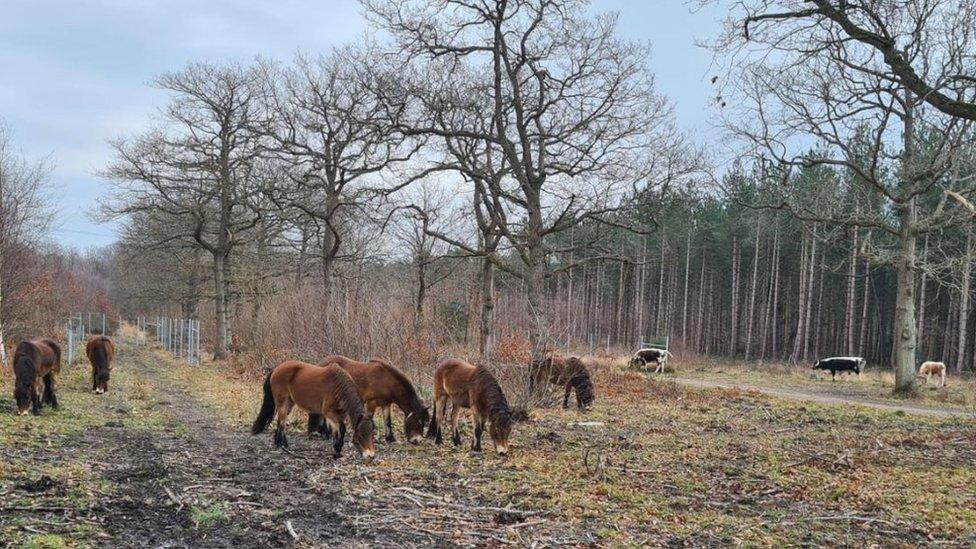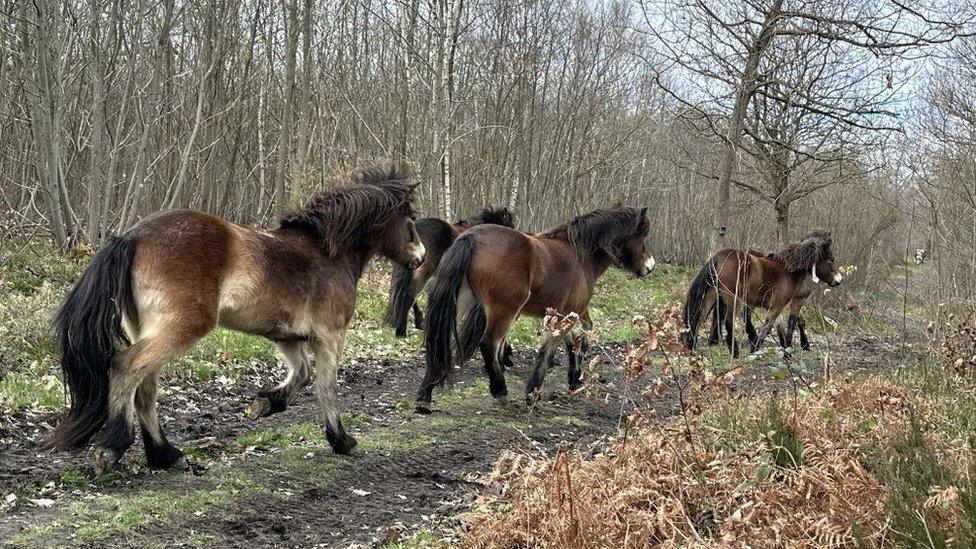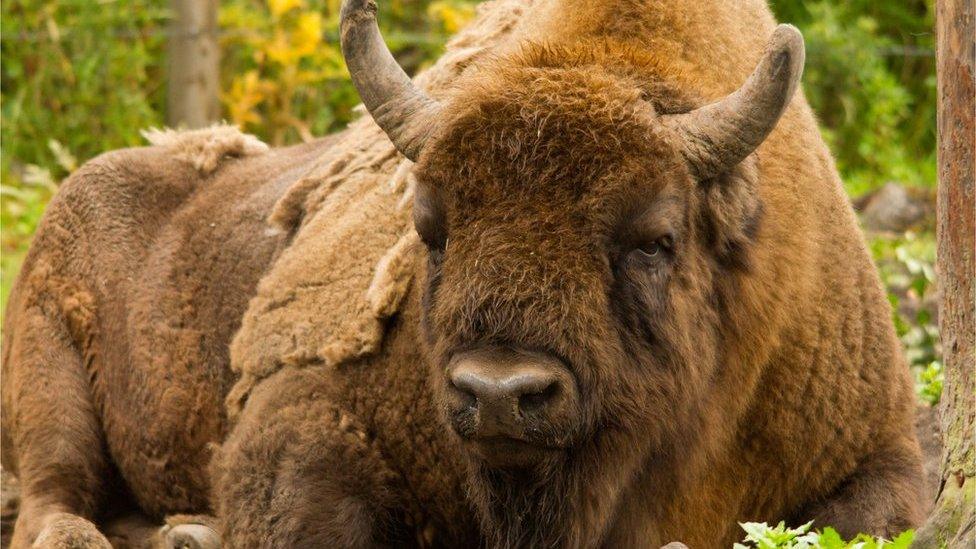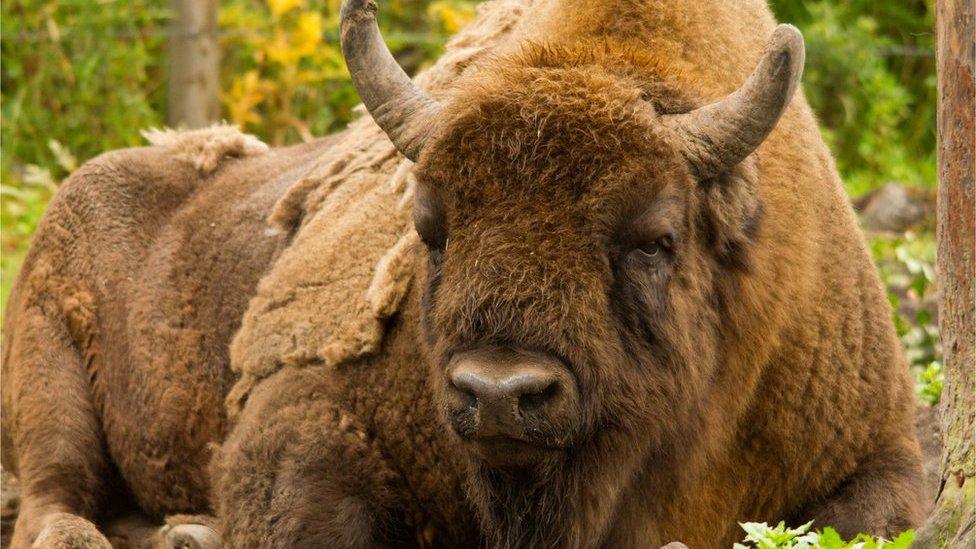Grazing animals introduced to Kent bison rewilding project
- Published

Exmoor ponies have joined the bison herd at the Wilder Blean Project near Canterbury, Kent
A bison rewilding project has welcomed a new cohort of grazing animals which ecologists say will improve biodiversity.
Longhorn cattle, iron-age pigs and Exmoor ponies have joined the bison herd at the Wilder Blean Project, external near Canterbury, Kent.
The animals have been introduced to naturally manage the woodland.
The public will be able to walk among the grazing cattle and ponies, but the bison will remain fenced off.
It follows the reintroduction of three female bison last July into the woodland, followed by a bull imported from Germany and the first calf to be born in the UK in thousands of years.
Kent Wildlife Trust and Wildwood Trust, which jointly run the project, said the bison immediately began to improve the habitat upon their arrival by debarking trees and creating deadwood, which makes homes for bats and invertebrates.

Ponies, pigs and cattle have joined the bison herd at the Wilder Blean Project in Kent
Area manager Alison Ruyter said: "Wilder grazing is about using native wild breeds of livestock to mimic the things that mega-herbivores would have done in the past when wild horses, aurochs and bison roamed around the country.
"They were inextricably linked with their habitats and we want to mimic that using the animals available to us now."
There are also plans, pending council approval, to build tunnels which would allow the bison to move more freely around the woodland, while offering a vantage point to visitors.
The grazing animals will be monitored for their effect on the environment, with the woodland managers collecting data on soil, insect numbers and vegetation structure.
Mark Habben, of the Wildwood Trust, added: "It's a really exciting stage for this innovative project.
"There'll be lots of research and observations in the coming years and we'll be looking at how their behaviours compare and the impact they have on the environment."

Follow BBC South East on Facebook, external, on Twitter, external, and on Instagram, external. Send your story ideas to southeasttoday@bbc.co.uk, external.
Related topics
- Published18 July 2022

- Published24 December 2022
